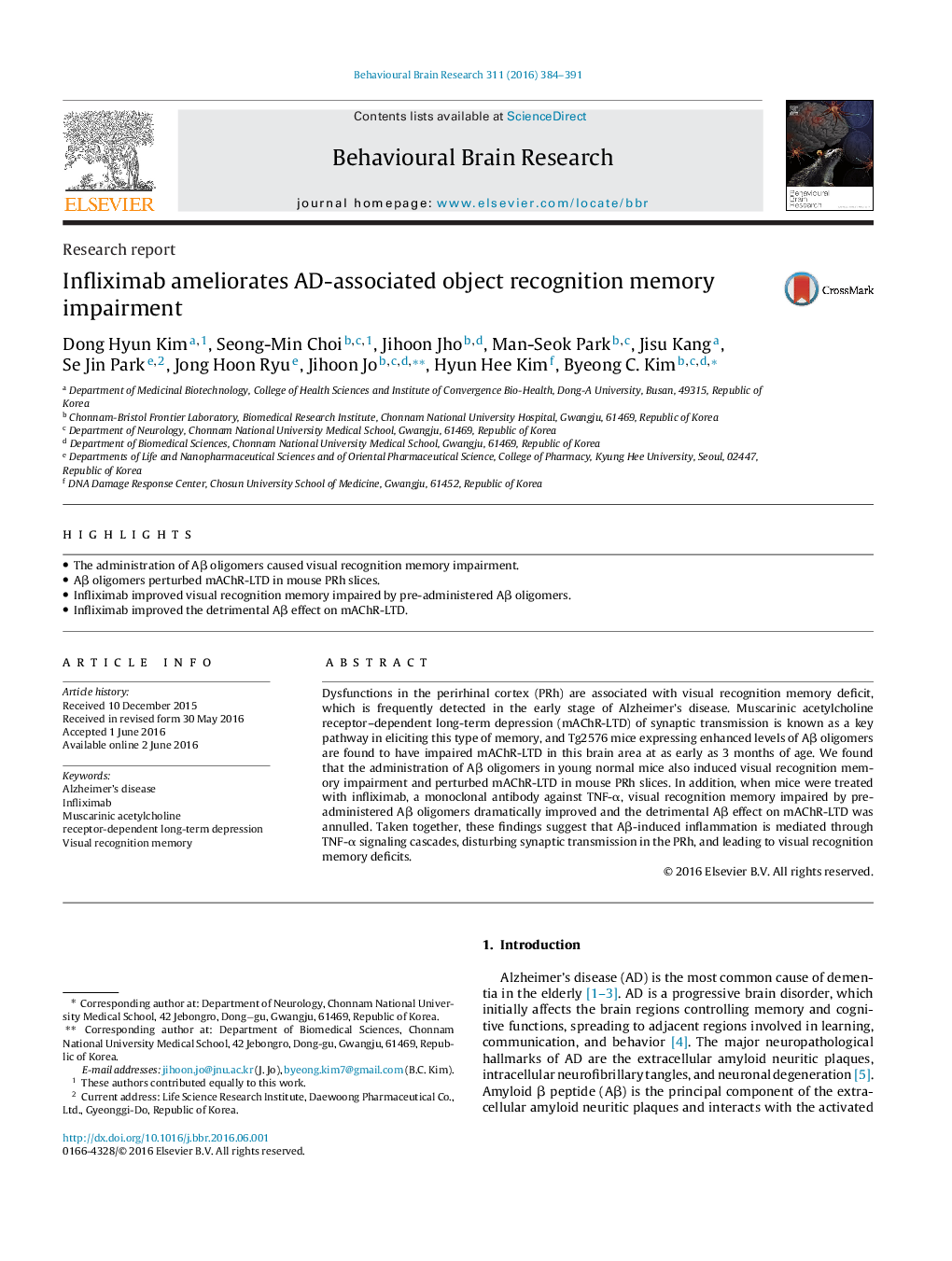| کد مقاله | کد نشریه | سال انتشار | مقاله انگلیسی | نسخه تمام متن |
|---|---|---|---|---|
| 6255971 | 1612922 | 2016 | 8 صفحه PDF | دانلود رایگان |

- The administration of Aβ oligomers caused visual recognition memory impairment.
- Aβ oligomers perturbed mAChR-LTD in mouse PRh slices.
- Infliximab improved visual recognition memory impaired by pre-administered Aβ oligomers.
- Infliximab improved the detrimental Aβ effect on mAChR-LTD.
Dysfunctions in the perirhinal cortex (PRh) are associated with visual recognition memory deficit, which is frequently detected in the early stage of Alzheimer's disease. Muscarinic acetylcholine receptor-dependent long-term depression (mAChR-LTD) of synaptic transmission is known as a key pathway in eliciting this type of memory, and Tg2576 mice expressing enhanced levels of Aβ oligomers are found to have impaired mAChR-LTD in this brain area at as early as 3 months of age. We found that the administration of Aβ oligomers in young normal mice also induced visual recognition memory impairment and perturbed mAChR-LTD in mouse PRh slices. In addition, when mice were treated with infliximab, a monoclonal antibody against TNF-α, visual recognition memory impaired by pre-administered Aβ oligomers dramatically improved and the detrimental Aβ effect on mAChR-LTD was annulled. Taken together, these findings suggest that Aβ-induced inflammation is mediated through TNF-α signaling cascades, disturbing synaptic transmission in the PRh, and leading to visual recognition memory deficits.
Journal: Behavioural Brain Research - Volume 311, 15 September 2016, Pages 384-391